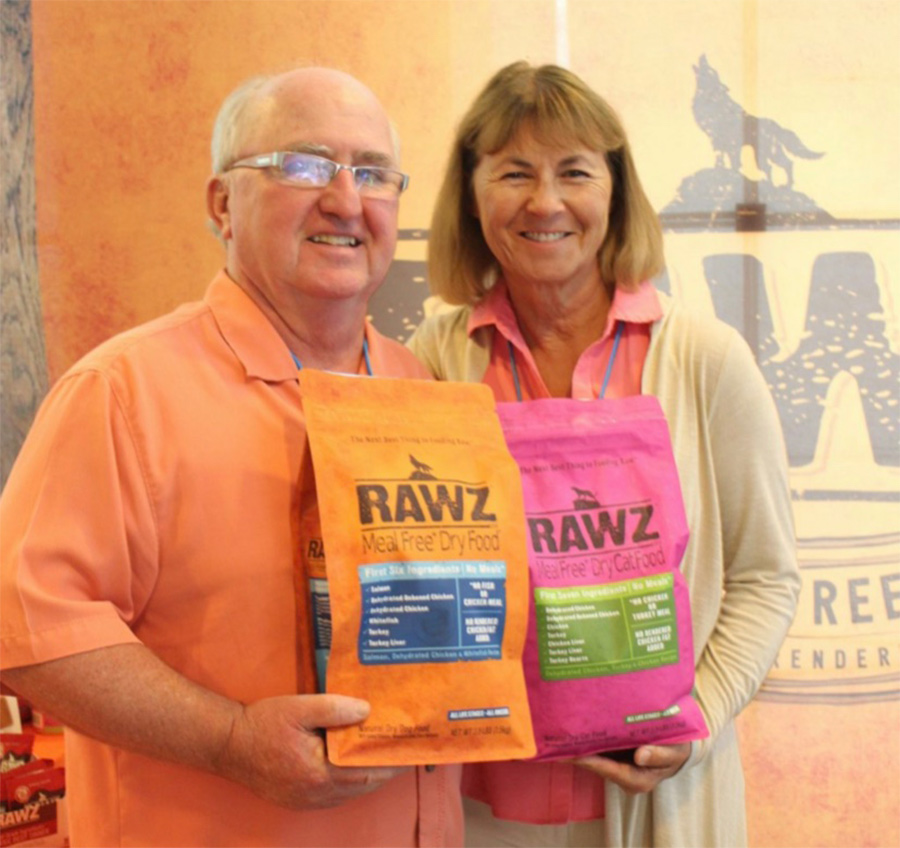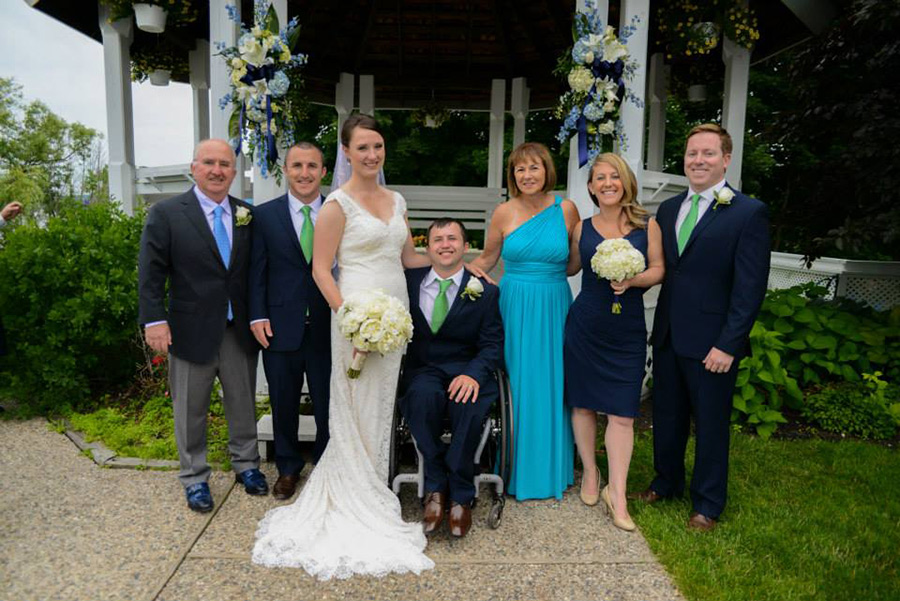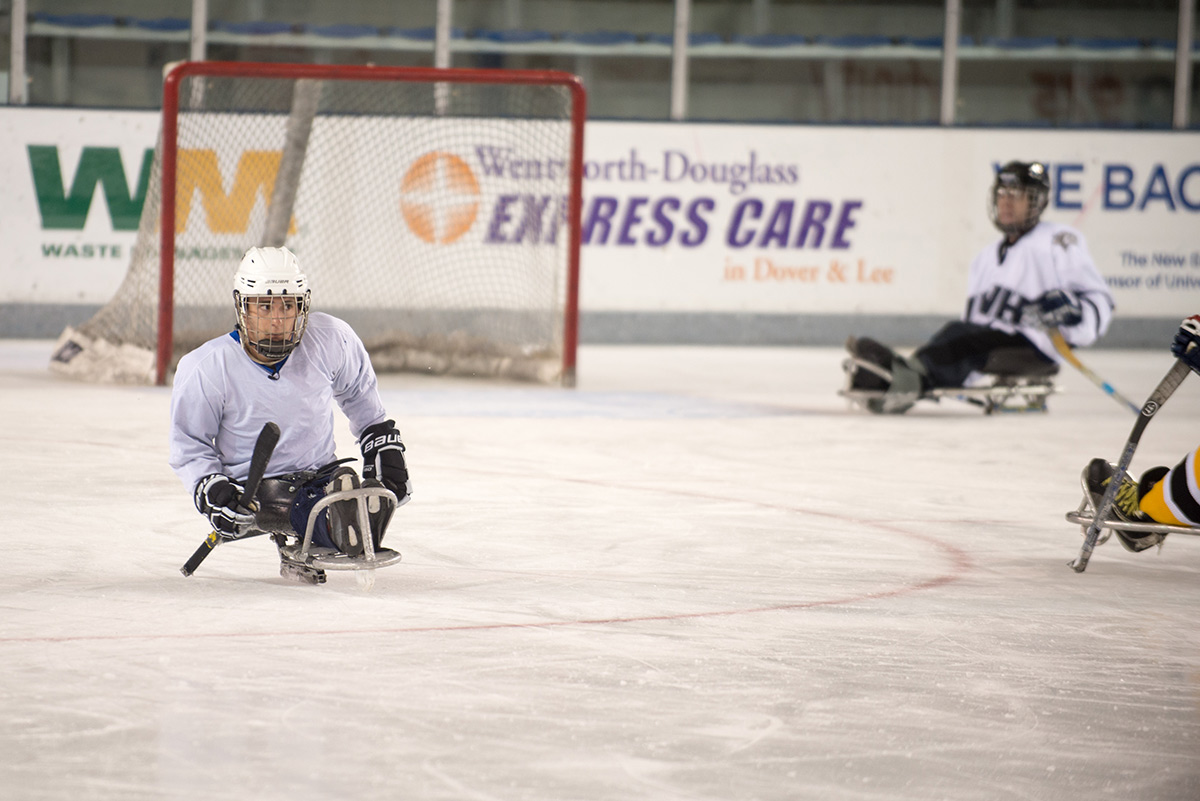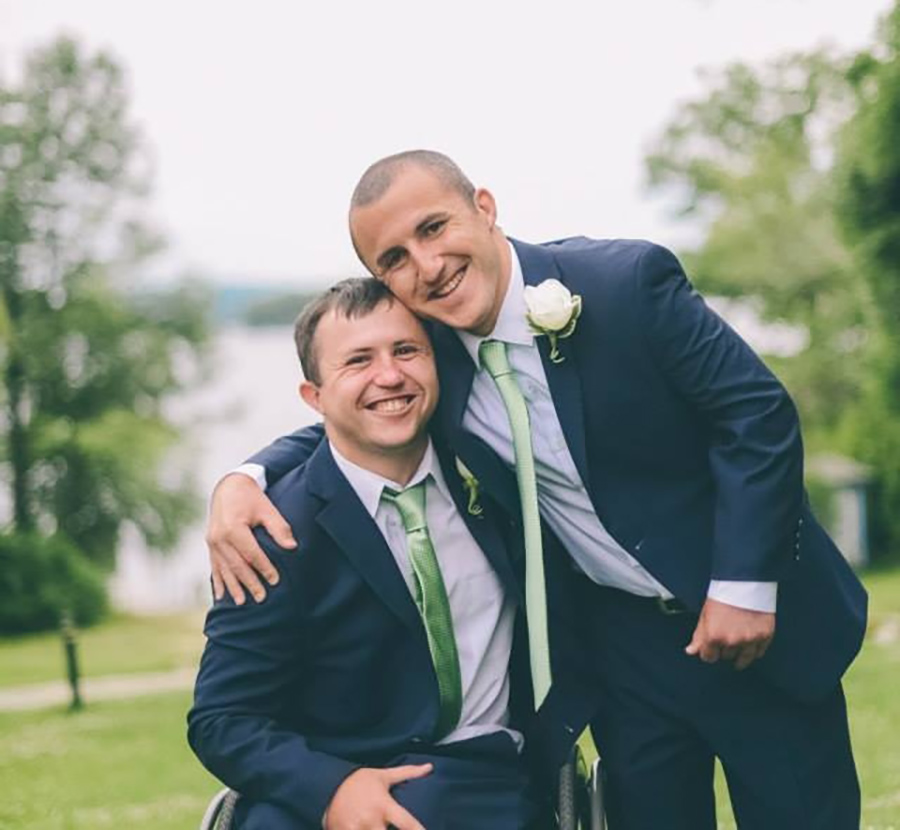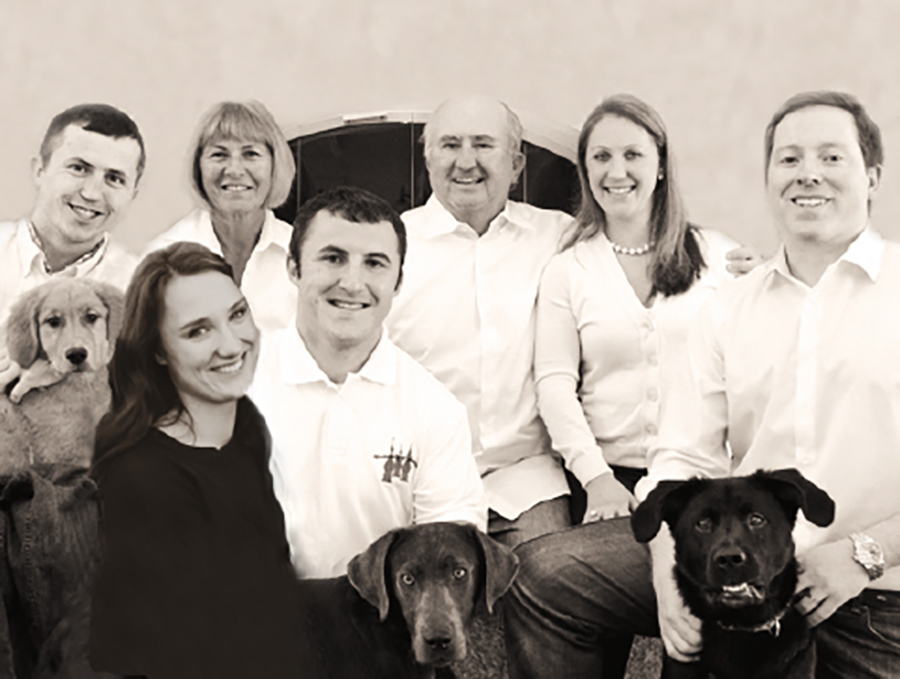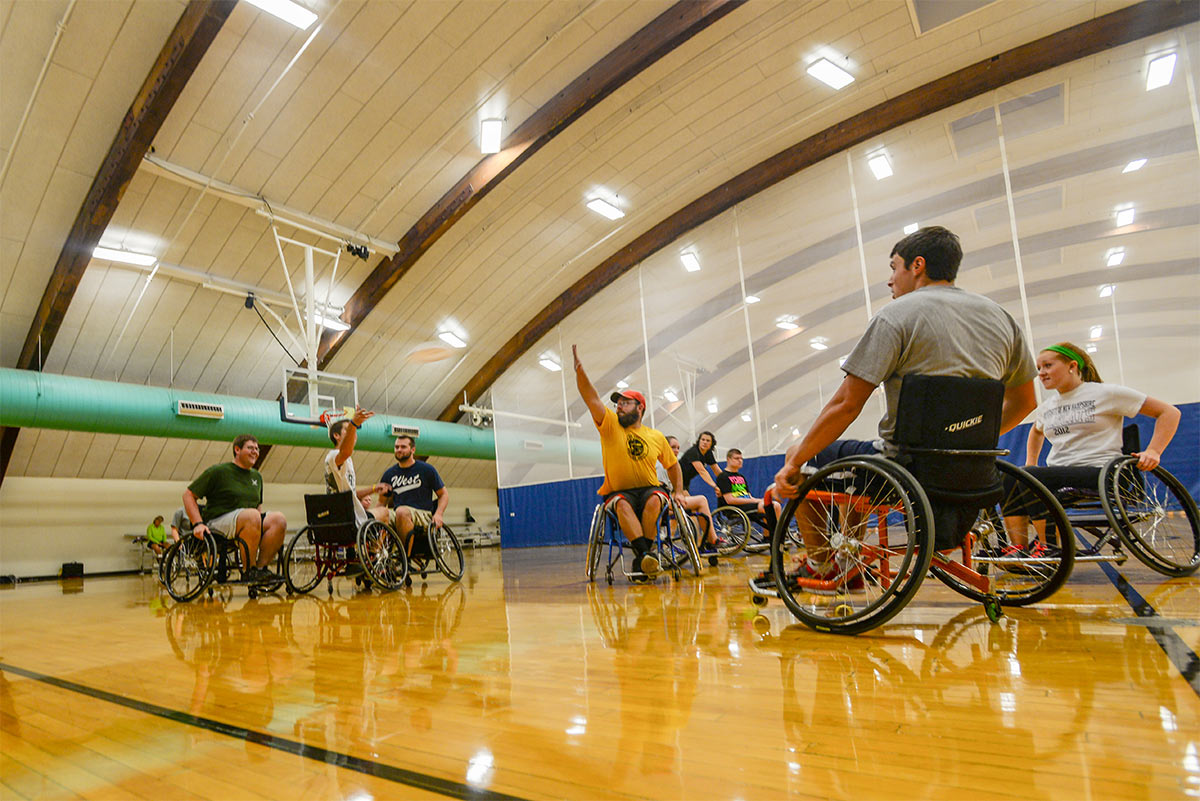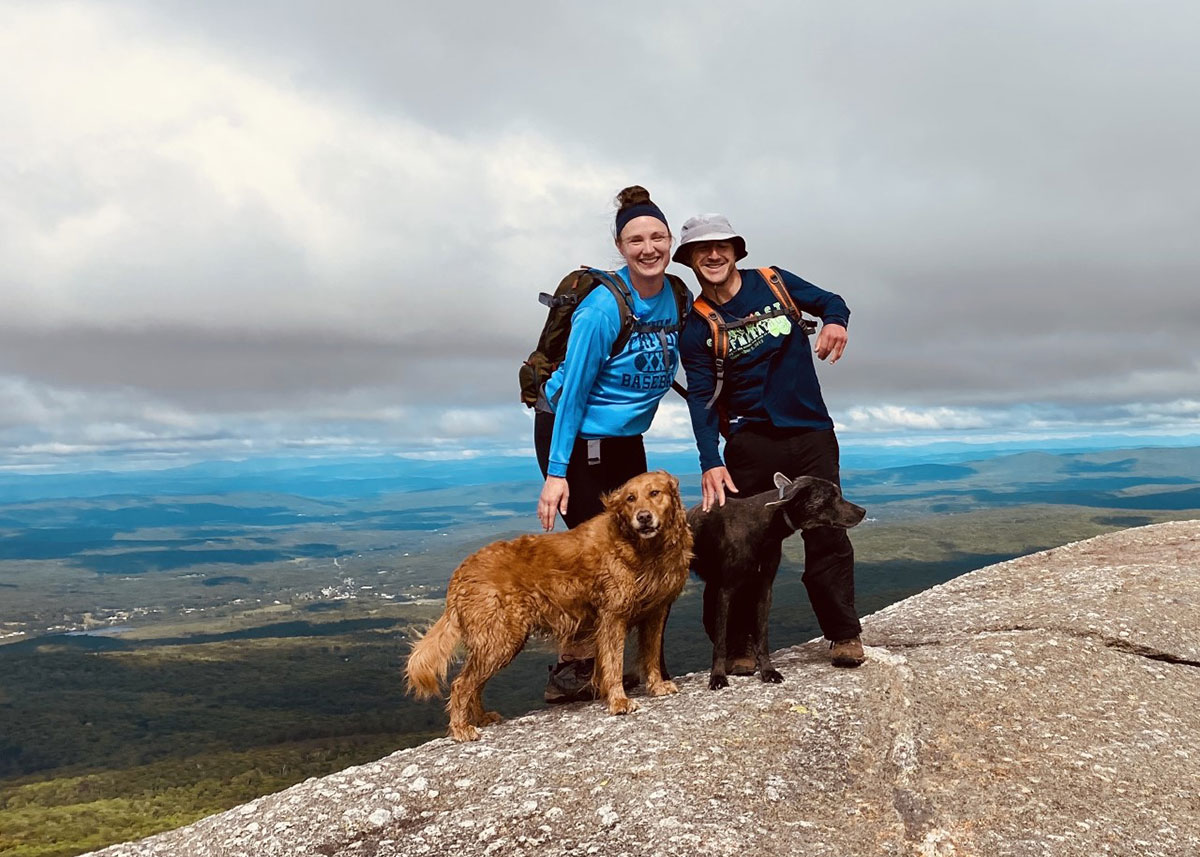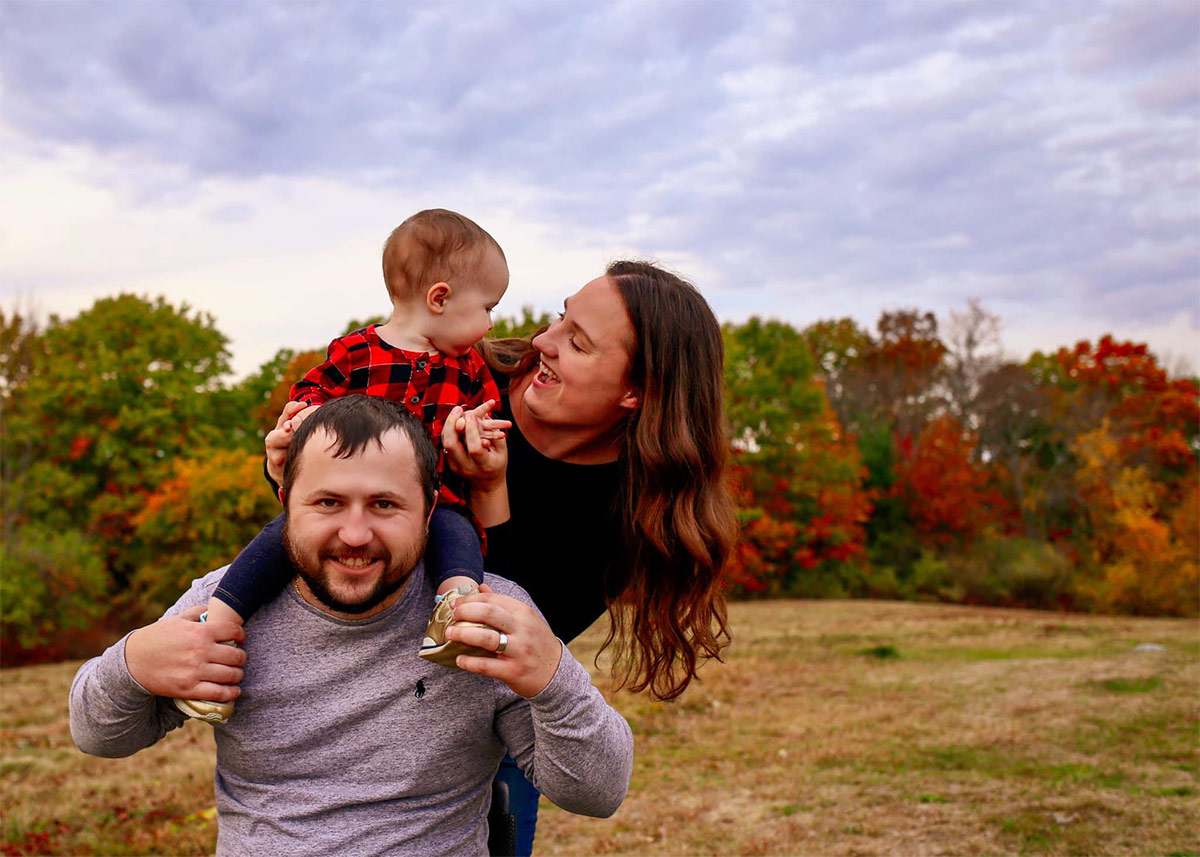hen her son Jim Scott III was 23, Janet Scott was told she should find a nursing home for him to live out the rest of his life. It was 2006, and Jim had been seriously injured in a car accident. He was suffering from a severe traumatic brain injury (TBI) and a host of other medical issues.
But putting her son in a nursing home would have felt like giving up, like failure — things that just aren’t in the Scott family DNA.
And 15 years later, the Scotts are using their philanthropy to help ensure that other people going through a similar medical crisis have options, as well. Janet and husband, Jim Scott Jr., own and operate RAWZ Natural Pet Food, a company they built with two goals: to make quality pet food and to donate 100% of its profits back to organizations that helped them navigate some of their family’s most challenging moments.
“When Jim and Janet called and said they would be sending us $100,000, my heart just soared — especially after the challenges of 2020 in our fundraising and for our clients. For a moment I had such peace of mind,” says Jill Gravink ’86, ’07G, NEP’s founder and executive director. “The gratitude I have for them, for believing in not only the mission of Northeast Passage but in the dream of what NEP can be … it’s just such an honor, really.”
For the Scott family, Northeast Passage is a special place.
“When I think about Northeast Passage, I think of Jill and her team, and their passion to help people,” says Jim Jr. “These are situations that are extremely difficult for families, but NEP brings this unshakeable commitment; no matter what your disability is, or what your interest is, NEP is there for you. They help people feel better and increase their self-esteem, have a sense of purpose. It’s really magical.”
For the Scott family, which also includes daughter Aimee Scott Murray, seeing their children hurt in life-altering accidents so close together was something they couldn’t have imagined.
“We were angry when Andrew got hurt, and then we got angrier when Jimmy got hurt,” says Jim Jr. But as a family, the Scotts focus on the helpers, not on the trauma. “We’re the kind of people who are grateful for what we have, not what we don’t have. You get to the point where you see every breath as a gift,” the elder Scott says.
For weeks after their accidents, both sons went through extensive rehab at Spaulding Rehabilitation Hospital in Boston. Eventually, Andrew would enroll at UNH and become involved with Northeast Passage, as a member of the sled hockey team. Jim III joined the Krempels Center in Portsmouth, a place he says, “saved my life,” and where he is still an active member.
And while some might dwell on the unlucky fact that two of their three children suffered medical crises with lifelong effects, Jim Jr. and Janet have a different viewpoint. “For us, it’s really about where we are, not who we were,” says Jim, adding that everything the family has been through has taught many lessons, including “affirming the power of now.”
He enrolled at UNH in 2006, but by second semester, realized it wasn’t going to work.
“Mentally, that’s when it started hitting me hard,” says Andrew, who had been a three-season athlete throughout his four years at Timberlane Regional High School in Plaistow. “I’d been paralyzed for more than a year, and that wasn’t changing.” Add in the fact that his brother was dealing with medical problems, as well, and it wasn’t the right time for him to be in college.
When he came back to UNH in 2008, he was ready to be successful. Part of that success was forming good relationships with his professors. At times he would end up back in the hospital with recurring medical problems. “I realized I should reach out to my professors when I needed help and not be stubborn; once I did that, it was amazing how helpful these people were.”
While pursuing a history degree with an eye toward teaching, he also became involved in sled hockey through Northeast Passage, at the urging of friend Taylor Chace ’11 (who would go on to compete in three Paralympic Winter Games as a member of the U.S. sled hockey team).
“Northeast Passage was just unbelievable,” Andrew recalls. “When I think of the tough time I had, trying to adapt to my new life in the early years, sled hockey helped me so much.”
He says the mood around Northeast Passage isn’t a focus on disability. “NEP is recruiting kids from around the country. They are athletes, not disabled athletes.”
Jim Scott III has no memory of his accident, which came after a night of partying with friends. “I tend not to be emotional about it,” he says, thankful that his brain won’t let him remember being thrown from the car as it crashed into the woods and crawling back to the road, where a passing driver found him and called 911.
He spent six weeks in the ICU at Beth Israel in Boston, and then another six weeks at Spaulding Rehab. There he made progress, including being able to get out of a wheelchair. But he still had no fine motor skills by the time he left Spaulding and so continued with the neuro day rehab program at Portsmouth Regional Hospital, doing physical, occupational and aquatic therapy and attending a memory group.
He eventually moved to a condo in Portsmouth but struggled with his emotional recovery even as he improved physically. He recalls one particularly dark day, one of his first as a member at the Krempels Center. A young woman who spoke through a voice box came up and introduced herself. “She said, ‘You look upset, what’s wrong?’ so I told her about my injury and that it was from drunk driving,” Jim recalls. “She said, ‘Listen, I got hit by a drunk driver when I was 19. If I’m not mad at you, you can’t be mad at you.’”
Her perspective boosted Jim’s spirits and set him on a more positive path. He continues as an active member at Krempels, sharing his story in the hopes of helping people recently diagnosed with TBI. “Any time you can interact with someone who’s going through what you went through … there’s no perfect formula for recovery, but I can share what I did and what worked for me.”
In the same way, Jim Jr. and Janet have been a resource for other families not only through their philanthropy but by sharing their family’s story. Janet says her boys’ strides in recovery have been nothing short of amazing.
That personal story makes its way into the daily work of promoting RAWZ.
“Every time, when my mother is making cold calls to a store to get them interested in RAWZ, she can’t tell the story of her boys without crying,” says Andrew. “There’s pain there, but it’s more about triumph … the triumph of where we are now.”
In the mid ‘90s, Jim Jr., then CEO of the company, created the Wellness brand of dog and cat foods. Officially launched in 1997, Wellness Pet Food and its sister brands were sold off in 2010, at which point it seemed the Scotts would be heading into an easy and early retirement, but everyone in the family knew Jim Jr. couldn’t sit still for very long. Work and family are Jim’s passions, and finding a way to combine the two wasn’t too far off, in the form of RAWZ.
“This is the guy who, when we were little, would work a 14-hour day and then show up in a full business suit and briefcase to coach a hockey game. He’s a workhorse; so we all knew it was only a matter of time before he went back to work,” says Andrew.
The idea for RAWZ came from a discussion with Andrew, who wanted to get a puppy. “My parents said, great idea, get a service dog, but no, I wanted a puppy I could train myself,” he recalls. But then a conversation started around how expensive service dogs were for people who needed them, and what if there was some way to make that more affordable.
And then there was Boomer. The family’s devoted yellow Lab, Boomer was like Jim Jr. and Janet’s fourth child. The beloved family pet was also a source of comfort and support when the Scott brothers were injured. “His impact on Andrew and then Jimmy was enormous,” says Janet. “He was so supportive of those boys together and separately.”
“That’s our compass: To try to make a difference. We’ve been very blessed in business, and we just feel doubly blessed that we can try to make a difference,” says Jim Jr.
Ask any of the Scotts about what makes their products stand out from others and you’ll hear a passionate discussion about its high protein content and its lack of rendered meats, fats or commercial gums. RAWZ has found a niche not in large chains like Petco or Walmart, but in smaller boutique pet food outlets — nearly 300 of them — from Pennsylvania to Ontario.
The company’s staff totals just shy of a dozen employees — including Jim Jr. and Janet, who put in long hours to fufill RAWZ’s mission.
Both Janet and Jim say the time is worth it when they know they’re doing it for the greater good of others and working alongside family members. They believe their business-for-philanthropy model has helped teach them lessons of gratitude, despite their family’s hardships.
“We never had that perspective before. We worked our whole lives; crazy, crazy hours. But, your universe changes when your kid gets hurt,” says Jim Jr.
Their passions for pets and worthy causes can be felt by those who benefit from their gifts as well. “To see Jim and Janet working 100% of their time on this, and working so hard, we feel like we share in the success of their business,” says Gravink.
“We knew the Scotts always believed in that ‘Newman’s Own’ model, where you build a for-profit business that would feed the nonprofits you care about,” Gravink explains. “They said to us we love what you’re doing and we’re going to stay with you for the long-term. Their generosity is truly remarkable.”
The focus, says Gravink, is helping people build a life that is healthy and happy. In some cases that involves transitions — transitioning from non-disabled to disabled, from military to civilian, from substance misuse to sobriety. In other cases it is about providing opportunities for full participation and inclusion in what life has to offer.
“We have many programs and people are counting on us to have the capacity to meet that demand, and RAWZ support is a huge part of that,” Gravink says.
“I’ll roll right onto the ice at practice, stick in hand, shoot pucks, do whatever I need to do,” he says. His father says that, because of his outgoing nature and willingness to listen, Andrew is a teacher that kids who are struggling gravitate toward.
Andrew says the lessons he’s teaching in his Algebra II class are important, but so are any life lessons he can impart along the way — especially during this past year of the pandemic.
“My own experience of getting paralyzed, having other health issues, taught me that life is extremely fragile,” he says. “If someone is going through some difficulty, you should be there for them, regardless of what your role is.”
“I’m blessed because I’m still improving; every day I’m doing something easier, better, faster,” says Jim III. At RAWZ he works with the digital marketing team on social media campaigns and responding to customer emails. But most of his time is out on the road doing retail store demos for three to four hours at a time, handing out samples for pets to try, sharing information about the products’ nutritional philosophy and answering questions about the company — as well as his own story.
“Having a traumatic brain injury is incredibly difficult,” he says. “I don’t know that I could work a 40-hour week but doing this gives me a lot of purpose. I love my job.”
In addition to his involvement with the Krempels Center, he feels good about sharing his story as a cautionary tale, speaking to school groups during prom season, warning them of the dangers of driving while impaired.
He’s written a book, “More Than a Speed Bump,” about his experience, and is launching his own business as a motivational speaker.
Sixteen years after his accident, Andrew has made peace with all that’s happened.
“There was a time where I realized I couldn’t remember what stepping on the sand feels like at the beach, or that feeling of first standing up in the morning after sleeping. At first, I really missed those things, but I think … it’s OK,” he says, noting that he’s lived with his wheelchair for nearly as long as he had lived without one. “It’s made me a better teacher and coach, and a better husband and dad. I think of that Maya Angelou quote, ‘By helping others, you ease your own burden.’ I’ve always believed in that.”
He and his siblings know their parents aren’t just making pet food and aren’t just donating money — they’re trying to pass down those lessons of gratitude and giving back.
“I think of us as average people with huge hearts. We’re still the same people, despite everything that’s happened to us. Helping people was ingrained in us early on by our parents, and someday their grandkids will know all about this — and they’ll help people, too.”
